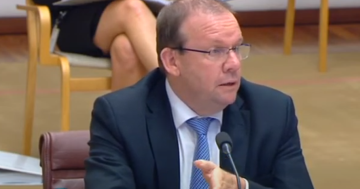 The Auditor-General has highlighted several weaknesses and improvement opportunities at Government Departments in a new country paper on environmental sector audits conducted in 2019-20 and 2020-21.
The Auditor-General has highlighted several weaknesses and improvement opportunities at Government Departments in a new country paper on environmental sector audits conducted in 2019-20 and 2020-21.
In his Paper, Themes from the Australian National Audit Office’s recent environmental audit coverage, Auditor-General, Grant Hehir said past audits into environmental matters had uncovered key characteristics and risks in the context of Government’s environmental responsibilities.
Mr Hehir said the audits found weaknesses in the management of probity and conflicts of interest; variability in the maturity of risk-based frameworks for the delivery of regulatory functions; and scope to improve performance measurement frameworks.
He said two audits into the Department of Agriculture, Water and Environment (DAWE) and one into the Australian Renewable Energy Agency provided key messages for the public sector.
“Data and information from IT and records management systems needs to be accessible and have appropriate quality controls if it is to effectively support the identification of key risks and trends,” Mr Hehir said.
“Entities should ensure records relating to conflict of interest declarations are current, complete and accessible,” he said.
“The coverage and scope of the probity management framework should be commensurate with the nature and level of the risks involved.”
Mr Hehir said entities should also ensure appropriate probity policies were developed, regularly reviewed and demonstrably adhered to through appropriate reporting on compliance.
The Auditor-General said this involved an active rather than passive approach to acting on probity risks.
He said another audit into DAWE and one into the Australian Fisheries Management Authority provided further key messages for the public sector.
“Regulators should use collected information and intelligence to assess the level of risk across the entire breadth of their regulation, and then target their activities at those areas with the highest level of risk,” Mr Hehir said.
“Governance and risk frameworks should consider available resources and feasibility of implementation to ensure intended outcomes are achieved.”
He said it was necessary to undertake regulatory activities in full accordance with procedural and legislative requirements to ensure that effective and defensible action could be taken in response to non-compliance.
The Auditor-General’s 10-page Country Paper can be accessed at this PS News link.











